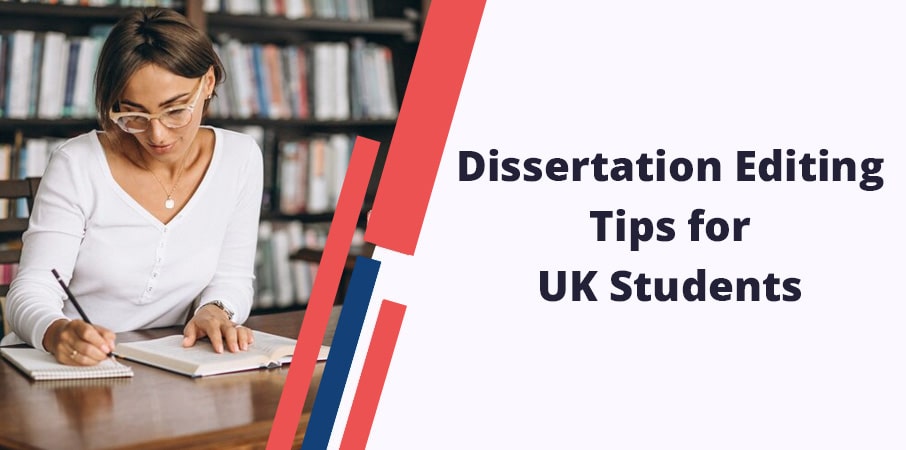Your Ultimate Guide to Dissertation Editing Excellence

Completing a dissertation is a monumental achievement in any academic journey, but the work does not end with the final draft. The editing process for dissertations is crucial to ensuring clarity, coherence, and scholarly integrity in your work. This guide aims to provide you with essential insights and practical strategies for effective dissertation editing, empowering you to refine your manuscript and present it with confidence.
Understanding the Importance of Dissertation Editing
Editing is not merely about correcting grammar and punctuation. It is a comprehensive process that enhances the overall quality of your dissertation. Here are some key reasons why dissertation editing is vital.
- Improves Clarity- Clear writing helps convey your ideas effectively, making it easier for readers to understand your arguments.
- Ensures Coherence- A well-edited dissertation flows logically from one idea to the next, enhancing the reader’s experience.
- Maintains Scholarly Integrity- Proper editing ensures that all sources are correctly cited, which is essential for maintaining academic credibility.
The Editing Process for Dissertations
Editing involves several stages, each focusing on different aspects of your dissertation. Here is a structured approach to help you navigate the editing process effectively.
1. Start with a Fresh Perspective
After completing your dissertation, take a break before diving into the editing phase. This allows you to return with fresh eyes, making it easier to identify areas that need improvement.
2. Create a Detailed Editing Plan
Outline specific aspects you will focus on during the editing process. Consider dividing your tasks into manageable sections, such as
- Grammar and Punctuation Editing- Correct any grammatical errors and punctuation mistakes.
- Dissertation Formatting Guidelines- Ensure adherence to your institution’s formatting requirements.
- Coherence in Research Manuscripts- Check that your arguments flow logically throughout the document.
3. Utilise Effective Proofreading Techniques
Proofreading is an essential part of the editing process. Here are some techniques to enhance your proofreading efforts.
- Read Aloud- Hearing your words can help you catch awkward phrasing or run-on sentences.
- Use Editing Tools for Dissertations- Leverage software like Grammarly or Hemingway to identify errors and improve readability.
- Create a Dissertation Proofreading Checklist- Develop a checklist that includes common errors to look out for, such as incorrect citations or inconsistent formatting.
4. Seek Peer Feedback for Academic Work
Sharing your dissertation draft with peers or mentors can provide valuable insights. Constructive feedback can help identify blind spots and areas needing clarification or expansion.
5. Focus on Formatting Consistency in Academic Documents
Ensure that all formatting elements are consistent throughout your dissertation. This includes headings, font sizes, margins, and citation styles (e.g., APA, MLA, Chicago). Consistency not only enhances professionalism but also makes your document easier to navigate.
Academic Writing Tips for Effective Editing
To further enhance your editing process, consider these academic writing tips.
- Effective Communication in Academic Writing- Prioritise clarity and precision in your language.
- Logical Flow in Academic Writing- Ensure each section transitions smoothly into the next.
- Polishing Your Thesis- Take the time to refine your arguments and improve overall clarity.
Time Management for Editing
Editing can be time-consuming, so effective time management is crucial. Here are some strategies to help you manage your time effectively during the editing phase.
- Pomodoro Technique for Editing- Work in focused intervals (e.g., 25 minutes) followed by short breaks to maintain concentration.
- Set Specific Goals- Define clear objectives for each editing session (e.g., “Today I will focus on grammar corrections”).
Conclusion
Mastering the art of dissertation editing is essential for presenting a polished and professional manuscript. By understanding the importance of the editing process and implementing practical strategies, such as creating an editing plan, seeking peer feedback, and managing your time effectively, you can enhance the quality of your dissertation significantly. Remember that effective editing is not just about correcting errors, it is about refining your arguments and ensuring that your research is presented clearly and coherently. With dedication and attention to detail, you can achieve excellence in your dissertation and confidently submit a document that reflects your hard work and scholarly integrity. By following this ultimate guide to dissertation editing, you will be well-equipped to tackle the final stages of your dissertation writing process with confidence. Accept this opportunity to polish your work and make a lasting impression on your readers!
